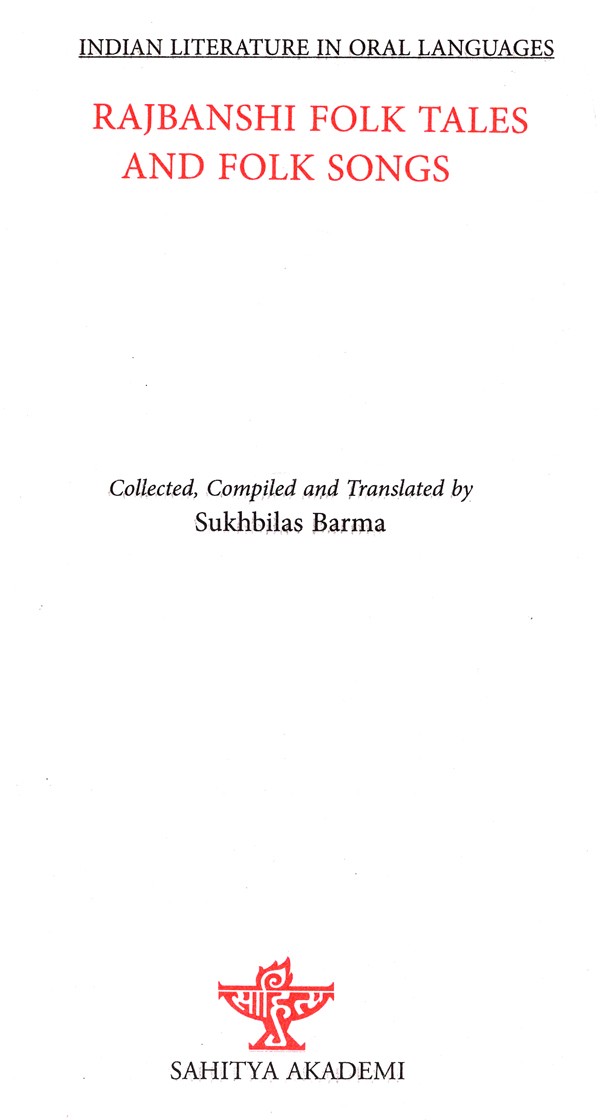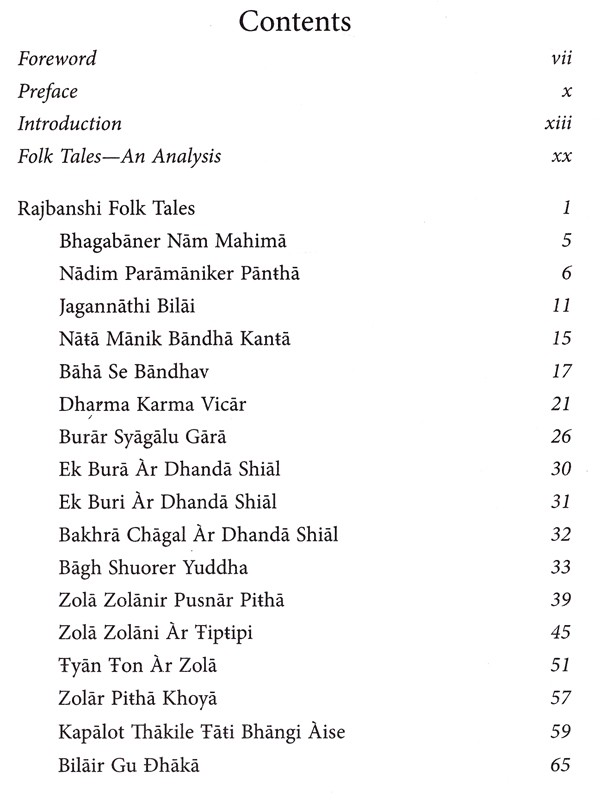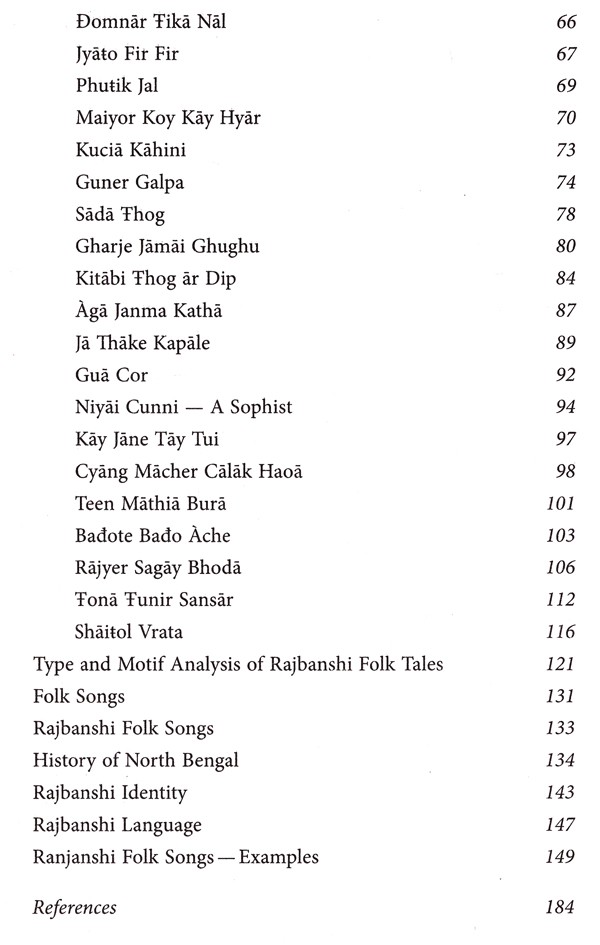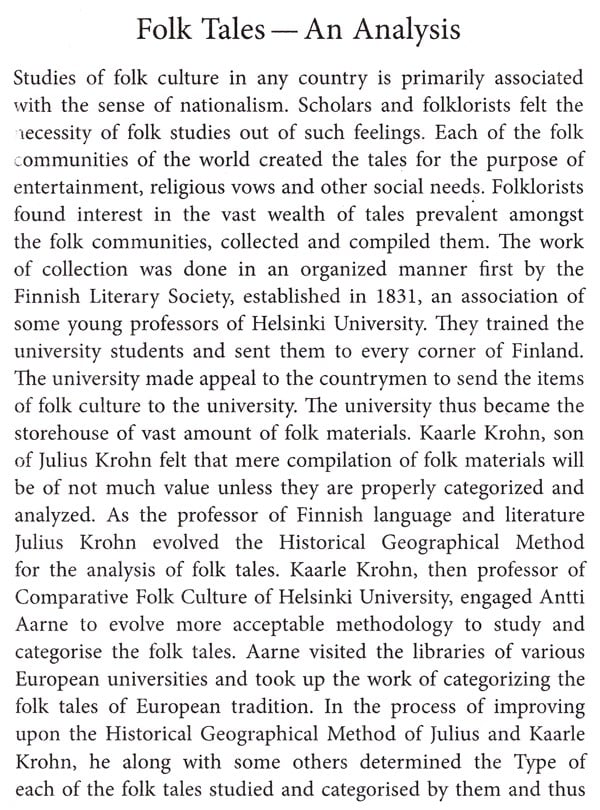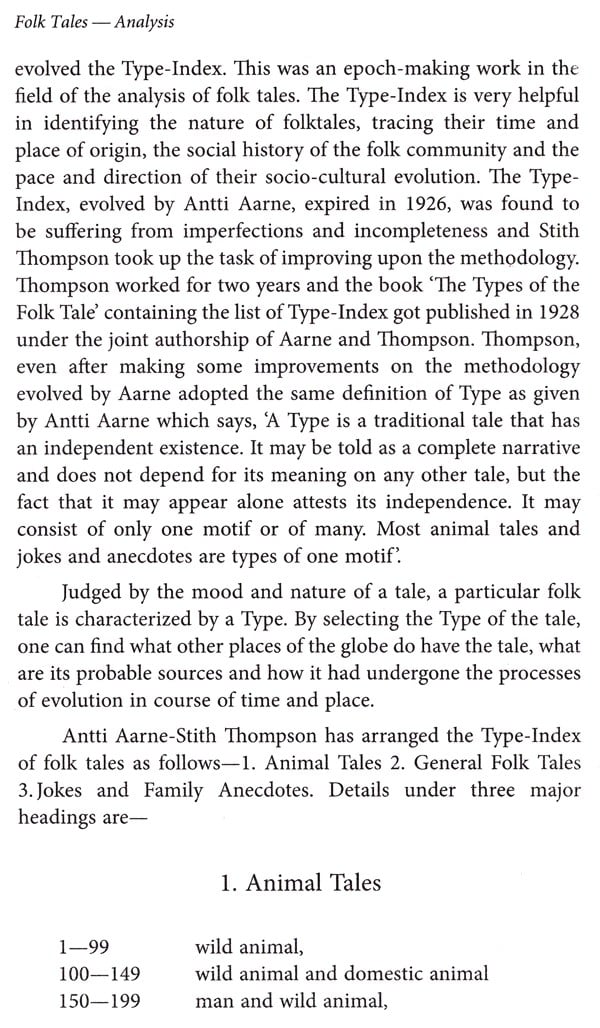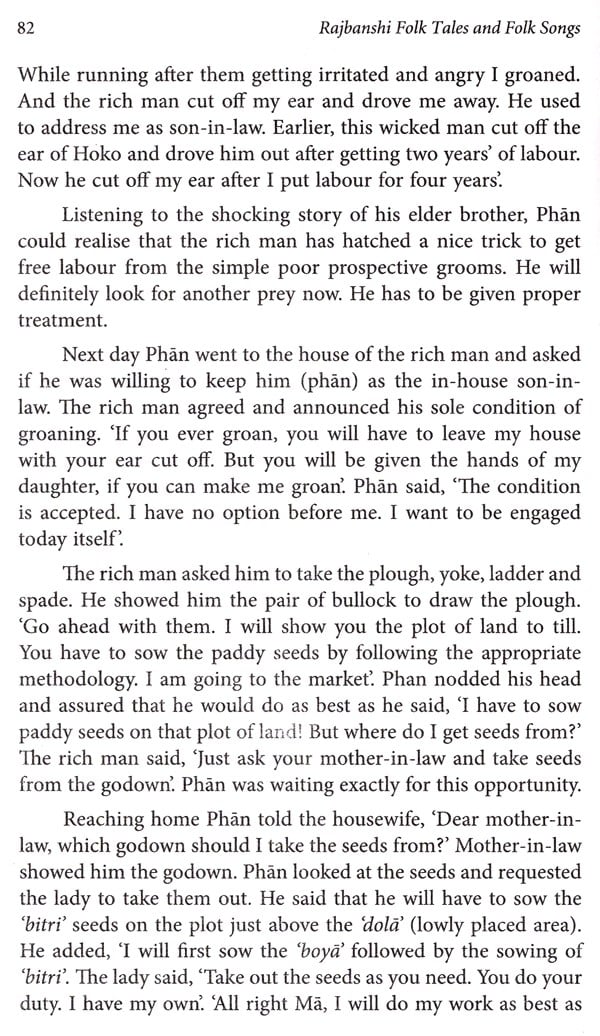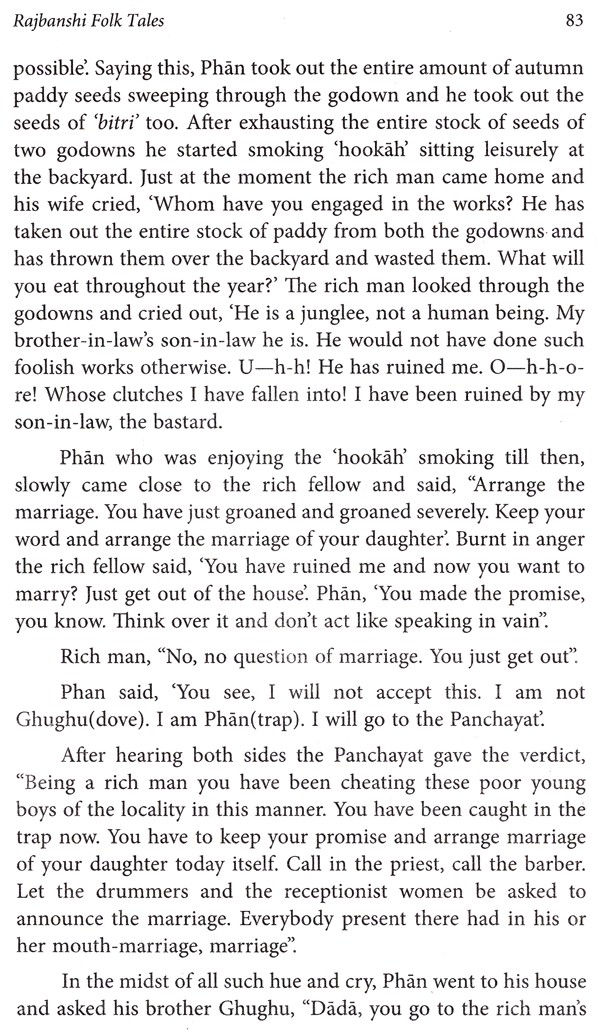
Rajbanshi Folk Tales and Folk Songs
Book Specification
| Item Code: | AZH005 |
| Author: | Sukhbilas Barma |
| Publisher: | SAHITYA AKADEMI, DELHI |
| Language: | ENGLISH |
| Edition: | 2017 |
| ISBN: | 9788126053414 |
| Pages: | 184 |
| Cover: | PAPERBACK |
| Other Details | 8.50x5.50 inches |
| Weight | 280 gm |
Book Description
Rajbanshi Folk Tales and Folk Songs: Rajbanshi community has a rich and ancient heritage of folk tales, folk songs, ballads and folk dramas. Bhawaiya chatka (folk songs of Rajbanshis) has now become a popular subject of folk studies in the country. This volume of folk literature of Rajbanshis encompasses the literature of the common people, at least the majority of them.
This book is a treasure trove of that community which is based on oral tradition. It reflects the feelings and taste of that community.
Sukhbilas Barma (b. 1946) is a bureaucrat belonging to the Indian Administrative Service (IAS) of West Bengal cadre He retired from the service in 2006 and from the active government job in 2009. Study of folk culture, particularly the folk culture of North Bengal has been his passion. Rajbanshi community is the most numerous of the ethnic groups residing in North Bengal. Barma as a member of the community has been pursuing with great interest the study of history, anthropology, sociology, culture and other allied issues associated with this great community. He is a vocal performer of the folk music of Bengal, where his speciality is Bhawaiya, the folk form of the Rajbanshi community. Apart from his performing excellence, Barma is an exponent of the folk music of Bengal. His books on Bhawaiya (both English and Bengali) are used as reference books in the Universities. He has been awarded Honorary D. Litt by the University of North Bengal for his valuable contribution to folk culture.
This book is the product of an assignment on Rajbanshi Folk Tales and Folk Songs given by the North-East Centre for Oral Literature (NECOL), Agartala, a wing of the Sahitya Akademi, New Delhi in May, 2011. The assignment was made to Dr. Girija Shankar Ray and me as an associate of Dr. Ray. We were given this task immediately after Dr. Ray was awarded the Bhasha Samman by the Akademi in October, 2010.
Indian literature is vast with its immense varieties, styles, forms and languages. But we are generally accustomed to consider the written literatures of the scheduled written languages only. In reality, the languages or their dialects spoken by the indigenous tribal people in India are very large and the literary compositions in most of them survive only in the oral form. With the passage of time many of these oral languages as well as their literature are facing the threat of extinction. But the value of these oral literary works is immense.
While speaking on the subject 'folk culture' of North Bengal, the scholars have to admit that it is like a confluence, i.e. the joining point of so many streams, where some of them are non-existent, disappeared with the passage of time for some reasons, while some others dominate. Such things have happened in this part of ancient Kamrup and Poundravardhana for historical, social and political reasons. People belonging to various stocks and culture have come to this area at different time periods starting from the ancient age. They have come here driven by various motives-religious, political, economic. Additionally, tea gardens of Darjeeling, Jalpaiguri and Assam have attracted people from innumerable tribal and ethnic groups to the area in the 19th century. Each of the ethnic groups had their own culture and literature to boast of. The original residents of the area belonging to the 'Bodo' stock and the group of people known as Rajbanshi too had their own culture. Jalpaiguri district alone became the residence of almost 36 tribal groups. All these taken together have given birth to an integrated culture.
**Contents and Sample Pages**
